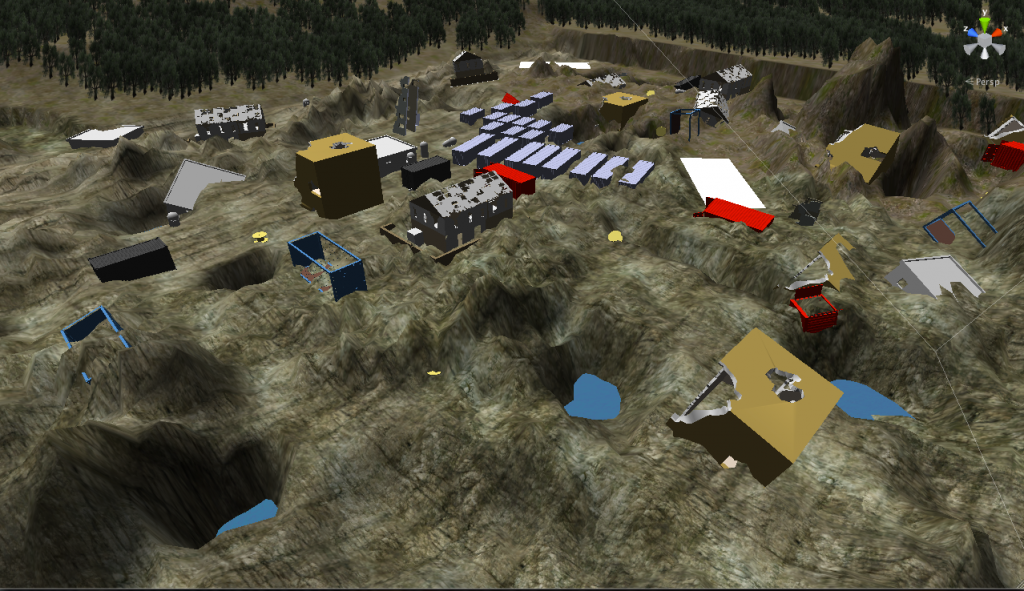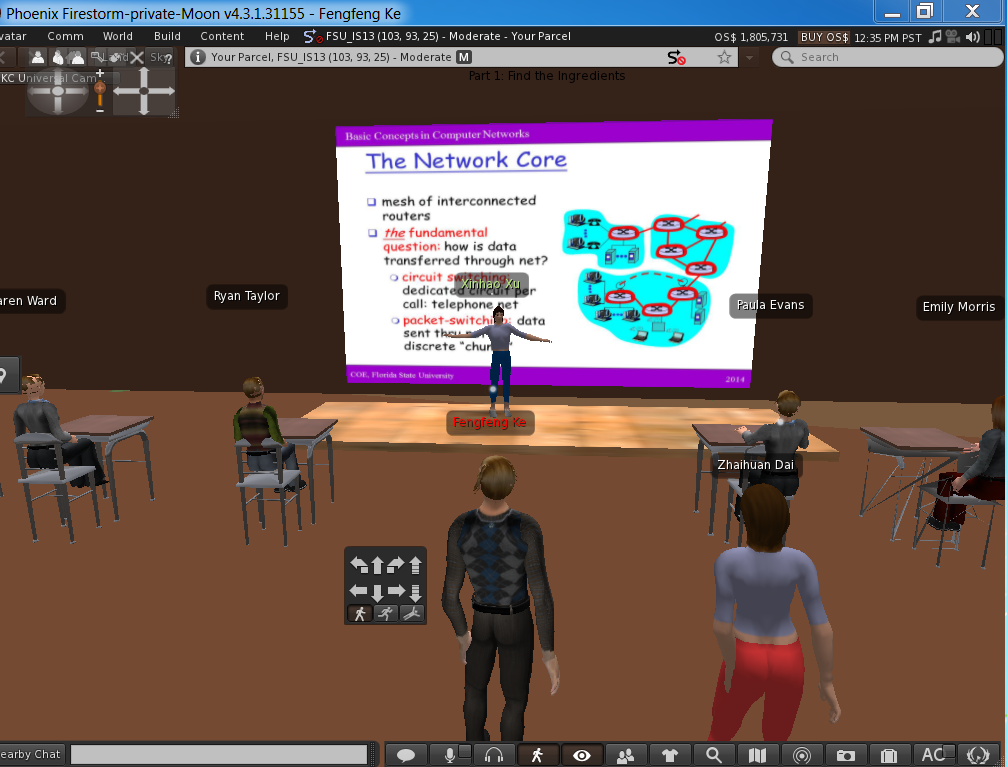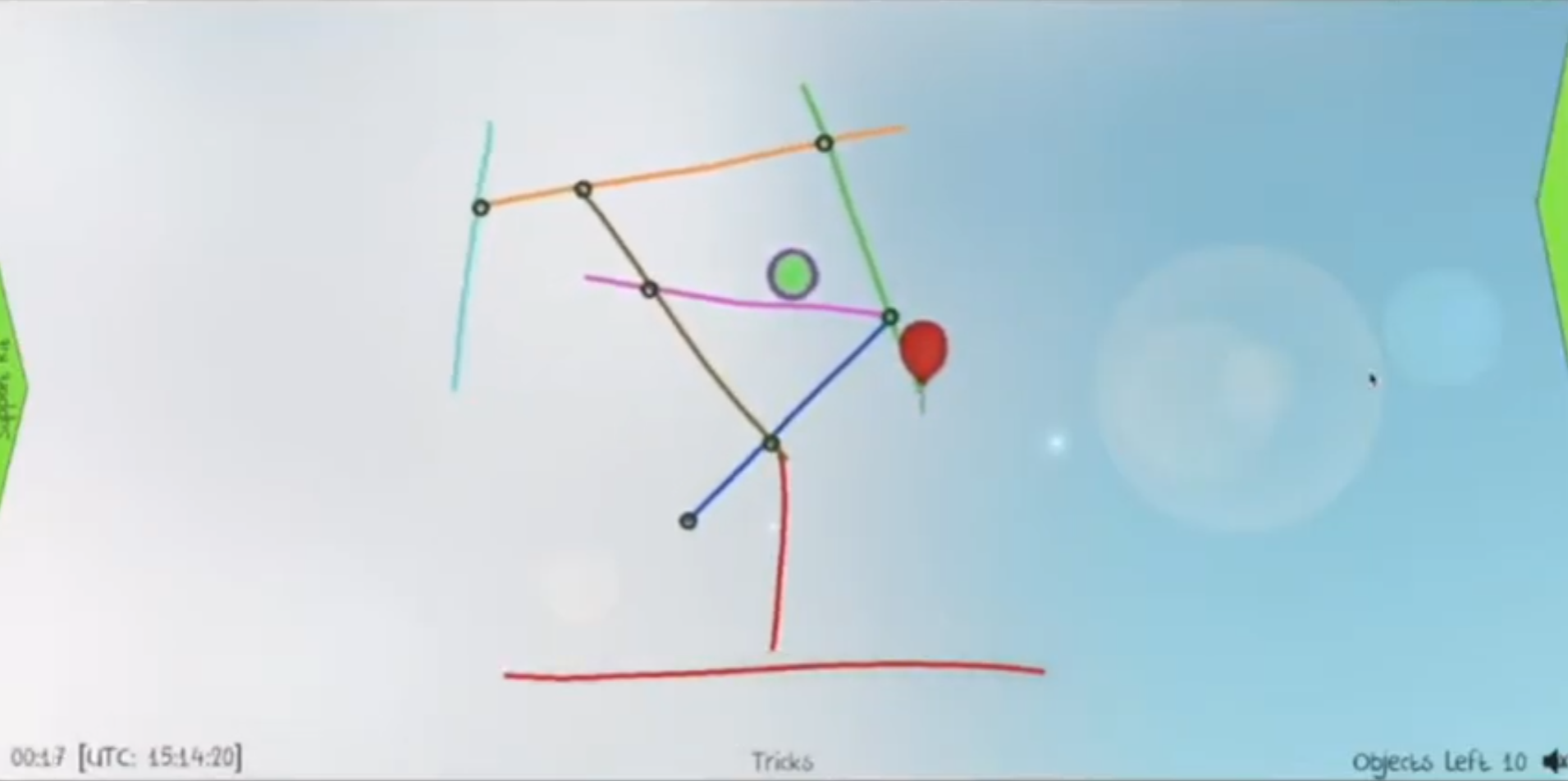
E-Rebuild
In this NSF-funded project, we investigate whether and how participating in three-dimensional architectural design and modeling via a simulation game-based learning platform will support integrated math representation and active problem solving for middle school students. Using a design-based research approach, an architectural, simulation game-based mathematics learning platform (called “E-Rebuild”) is developed and implemented. The extended E-Rebuild will frame mathematical representation and problem solving as a structured series of architectural design and problem solving actions; allow for end-user customization of the platform via parameter-based level generation; and incorporate unobtrusive diagnostic assessment as well as assessment-driven, adaptive learner support during the course of game play.


Immersive and Adaptive Learning for Students with Autism
In the previous phase of this design-based research project, we examined the design and learning effectiveness of a 3D, virtual-reality-based social skills training program for the social competence and self-identity development of children with high-functioning autism spectrum disorders. The study aims to enrich the research area of technology for special education by examining a networked, versatile learning environment in which children with autism can engage in in situ, design- and play-mediated social skills training. The study addresses both theoretical and empirical issues on the design of a computer-assisted, naturalistic, and immersive learning experience for children with special needs.
In the current phase of the project, we aim to study individualized training of representational flexibility for STEM and computational reasoning and problem solving among adolescents with autism, hence addressing a significant barrier to college enrollment of this learner group who otherwise have the potential to become future sources of STEM talent. Researchers will utilize 3D virtual reality (VR) with body sensory technologies to create an adaptive, representational flexibility training program that helps participants learn how to design and code simulations and games in a 3D virtual-reality context. This program, called Force and Motion-Adaptive Representation (FM-AR), will facilitate participants’ ability to select, connect, convert, and construct multimodal representations of physics and mathematics problems while practicing and experimenting with computational concepts during VR-based simulation design and programming.
Progress
Utilizing 3D virtual reality (VR) with body sensory technologies, we are designing and studying an adaptive, hypermedia learning system (called FM-AR) that aims to promote representational flexibility, understanding in physics, and computational thinking of adolescents with high-functioning autism. Please click here to check more information about FM-AR.We have refined the design of the virtual-reality-based social skills training platform and developed an implementation protocol on how to adapt the sequence and pacing of the VR-based learning tasks and scenarios based on individual learners’ needs.The project-related study findings indicated the feasibility and effectiveness of VR-based social skills training for participants with high-functioning autism.
Ke, F., & Moon, J. (2018). Virtual collaborative gaming as social skills training for high‐functioning autistic children. British Journal of Educational Technology, 49(4), 728-741.
Ke, F., Moon, J., & Sokolikj, Z. (presented 2018, April). Play and design based social skills training in a virtual world for children with high-functioning autism. Presentation to be given at American Psychological Association’s conference on Technology, Mind & Society, American Psychological Association, Washington, DC. (National)
Ke, F., & Moon, J. (presented 2018, April). Virtual-Reality based role-playing and design on social interaction skills development of children with high-functioning autism. Presentation to be given at AERA 2018 Annual Meeting, American Educational Research Association, New York, NY. (International)
Ke, F., Qi, H., & Lee, S. (presented 2016, October). Mixed reality based social skills training for children with high-functioning autism. Presentation at SRCD 2016 Special Topics Meeting on Technology and Media in Children’s Development, The Society for Research in Child Development, Irvine, CA. (National)

Inclusive Design of
e-Learning
We examine inclusive, e-learning environments that promote engaging and effective learning interactions for a diversified learner population. The project of MILE (“Mixed-Reality-Integrated Learning Environment”) examine the design model and effects of a mixed reality integrated teaching training program in providing an active and ongoing practice of teaching for graduate teaching assistants in STEM disciplines. The project of “Web-based teaching and learning: Across culture and age” used qualitative and quantitative techniques to explore the impact of online pedagogies and contexts on learning and success for university students living in rural and urban areas.
Progress
Iterative design experiments of the MILE platform were conducted in Fall 2015-2018. In this design-based research project, we design and examine the impact of a virtual-reality-based, Kinect-integrated learning environment on the sense of presence and self-efficacy of teaching trainees. Data has been collected via screen and video recording of virtual teaching performance, survey, video-stimulated recall interview, and eye-tracking. Preliminary data indicated that the VR- and Kinect-enabled learning environment supported and sustained the sense of presence, and helped to create higher consciousness of class-management for student teachers. Please check a demo video of the MILE platform here.
The platform has evolved into the Enactive Virtual Environment for teaching practice (EVETeach) as a NSF IUSE Engaged Student Level 2 project award, aiming to advance preservice teacher education by addressing two issues: (a) the difficulty in allowing for an accessible and scalable practicum experience for preservice mathematics and science teachers, and (b) the lack of interdisciplinary experiences in teacher preparation programs.
The NSF award number is 2110777: Teaching Practices with Multiplayer Mixed Reality Simulations and Virtual Students (from October 1, 2021- September 30, 2024).

INFACT: Including Neurodiversity in Foundational and Applied Computational Thinking
Funded by the US Department of Education’s Education Innovation and Research Program, INFACT is a consortium of leading researchers and practitioners in CT education. EdGE at TERC is leading the team in the design, development, implementation and research of a comprehensive set of teaching and learning materials for inclusive computational thinking (CT). Our research group will contribute work on VR assessments for learners with Autism and conduct related design research.
Time Period: 2019 – 2023
Project Consortium Partners:
TERC (PI)
University of Florida
University of Maryland
Florida State University
Knology
Looking Glass
Digital Promise

Characterizing the Continuum of Care Ecosystem for Neurodiverse Populations in North Florida’s Urban-Rural Regions
The World Health Organization (WHO) emphasizes the interaction between health conditions and environmental factors are particularly evident in rural areas, affecting individuals with various disabilities, including neurodiversity such as autism spectrum disorder (ASD), ADHD, dyslexia, Down syndrome, and mental health conditions. We acknowledge that rural areas face increased challenges in terms of limited resources, such as education, transportation, vocational rehabilitation, and healthcare. Resources for neurodiverse families are often fragmented, requiring interdisciplinary efforts to bridge gaps. Surveys and interviews will help us uncover unique community needs, considering the impact of care system changes on individuals and related areas like education and employment. Standardizing neurodiversity care in resource-limited environments is crucial, with our project goals aimed at improving access without compromising quality of care.
*This project is in preparation for grant applications.
Time Period: 2023–present

Physics Playground
Support:
This report is based on research supported by Institute of Education Sciences, U.S. Department of Education to Florida State University.
“Exploring adaptive cognitive and affective learning support for next-generation STEM learning games.” (Institute of Education Sciences award no. R305A170376, Val Shute and Russell Almond, PIs)
Additional support (for previous version of Physics Playground and the Peanut and Proc4 scoring engines) was provided by:
‘Bill & Melinda Gates Foundation grant “Games as Learning/Assessment: Stealth Assessment” (no. 0PP1035331, Val Shute, PI)’,
‘National Science Foundation grant “DIP: Game-based Assessment and Support of STEM-related Competencies” (no. 1628937, Val Shute, PI)’,
‘National Science Foundation grant “Mathematical Learning via Architectual Design and Modeling Using E-Rebuild.” (no. 1720533, Fengfeng Ke, PI)’,
The opinions express are those of the authors and do not represent views of any of the sponsoring agencies.
Time Period: 2012–